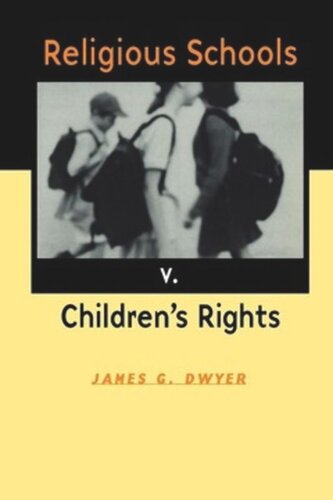

Most ebook files are in PDF format, so you can easily read them using various software such as Foxit Reader or directly on the Google Chrome browser.
Some ebook files are released by publishers in other formats such as .awz, .mobi, .epub, .fb2, etc. You may need to install specific software to read these formats on mobile/PC, such as Calibre.
Please read the tutorial at this link: https://ebookbell.com/faq
We offer FREE conversion to the popular formats you request; however, this may take some time. Therefore, right after payment, please email us, and we will try to provide the service as quickly as possible.
For some exceptional file formats or broken links (if any), please refrain from opening any disputes. Instead, email us first, and we will try to assist within a maximum of 6 hours.
EbookBell Team

5.0
28 reviewsDespair over the reported inadequacies of public education leads many people to consider religious schools as an alternative. James G. Dwyer demonstrates, however, that religious schooling is almost completely unregulated and that common pedagogical practices in fundamentalist Christian and Catholic schools may be damaging to children. He presents evidence of excessive restriction of children's basic liberties, stifling of intellectual development, the instilling of dogmatic and intolerant attitudes, as well as the infliction of psychological and emotional harms, including excessive guilt and repression and, especially among girls, diminished self-esteem. Courts, legal and political theorists, and the public typically argue that families and religious communities are entitled to raise their children as they see fit and that the state must remain neutral on religious matters. Dwyer proposes an alternative framework for state policy regarding religious schooling and other child-rearing practices, urging that the focus always be on what is best, from a secular perspective, for the affected children. He argues that the children who attend religious schools have a right to adequate state regulation and oversight of their education. States are obligated to ensure that such schools do not engage in harmful practices and that they provide their students with the training necessary for pursuit of a broad range of careers and for full citizenship in a pluralistic, democratic society.